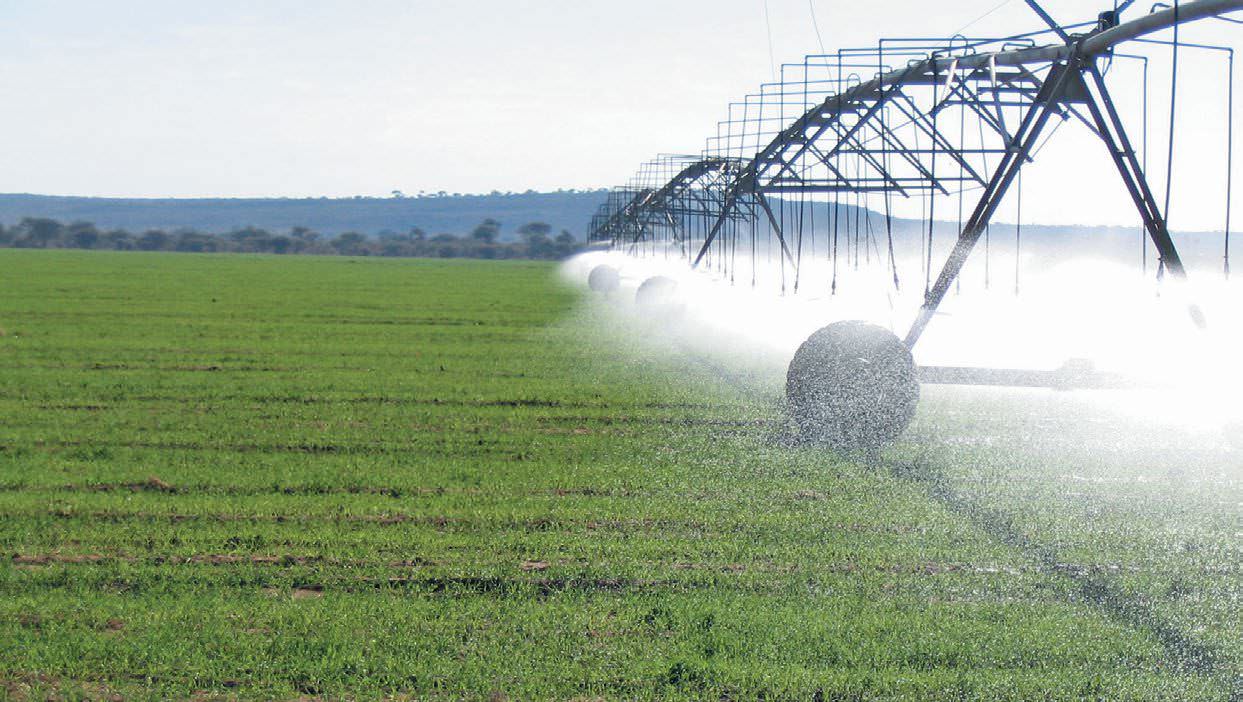A recent study published by the Water Research Commission highlights the urgent need for identifying on-farm treatment options to help reduce the high levels of microbial contamination in irrigation waters, thereby reducing the associated food safety hazards for consumers. Denene Erasmus summarises some of the report’s key findings.

Many of South African rivers from which water is drawn for agricultural irrigation purposes are carrying extraordinarily high pathogenic loads. Produce irrigated using this water are often minimally processed fresh fruit and vegetables or products that are eaten raw.
The risks of using this water to produce edible crops have been weighed against the backlog of providing sanitation services and food insecurity by various local research organisations, including the South African Water Research Commission (WRC). The WRC, in co-operation with the Department of Agriculture, Forestry and Fisheries (DAFF), published a report titled, ‘Scoping study on different on-farm treatment options to reduce the high microbial contaminant loads of irrigation water to reduce the related food safety risk’. According to the report, in addition to the threat to consumer health, large-scale outbreaks of food-borne illnesses will affect sales and damage consumer confidence in local produce. Such outbreaks could also result in legal challenges that could potentially prevent entry into lucrative export markets, as well as produce possibly being rejected by local consumers. “The consequences would be disastrous for SA agriculture considering that this sector is one of the largest employers of labour in the country and rapidly increasing in economic importance,” the report reads.
CAUSES OF RIVER POLLUTION
According to the study, insufficient sanitation facilities and inadequate sewage treatment works throughout South Africa are considered the primary sources of pollution. Sanitation facilities in rural areas, in particular, are often inadequate for the size of the populations residing in those areas. “Consequently, rivers have become receivers of waste and waste water while still being used for agricultural irrigation,” says the report.
Denne historien er fra 20 January 2017-utgaven av Farmer's Weekly.
Start din 7-dagers gratis prøveperiode på Magzter GOLD for å få tilgang til tusenvis av utvalgte premiumhistorier og 9000+ magasiner og aviser.
Allerede abonnent ? Logg på
Denne historien er fra 20 January 2017-utgaven av Farmer's Weekly.
Start din 7-dagers gratis prøveperiode på Magzter GOLD for å få tilgang til tusenvis av utvalgte premiumhistorier og 9000+ magasiner og aviser.
Allerede abonnent? Logg på

New farmers' seedling pitfalls
Inexperienced farmers may be tempted to grow seedlings from seed themselves, but they have much to gain by trusting a seedling grower at a nursery to perform this task for them instead

South African avocado production: a success story
Avocado production in South Africa has expanded markedly since the industry's humble beginnings over 80 years ago. From a small grove planted in 1938 in what was then Nelspruit, the industry has blossomed to seven million trees planted on 20 000ha. Dr Guy Witney, project manager at Great Brak Avos, spoke to Annelie Coleman about the country's avocado production.

Unlocking value through livestock exports
Exporting livestock might sound like a daunting business that's better left for big companies, but Gerrie Ferreira, who farms near Oudtshoorn in the Western Cape, has been doing it successfully for almost 30 years, sometimes in partnership with other breeders. He spoke to Glenneis Kriel about the huge potential this market holds, and offers some advice for farmers who are contemplating going this route.

An agribusiness's dedication to community upliftment
For agribusiness NWK, located in Lichtenburg, North West, corporate social investment is an important part of creating a positive influence alongside financial returns. Johan Bezuidenhout, NWK’s group manager of corporate marketing and communication, spoke to Annelie Coleman about why the company chooses to invest millions of rands in the area it operates in every year.

Empowering dreams, transforming lives
Since its launch in 2013, the Agri's Got Talent competition has revolutionised the lives of many farmworkers by unlocking their hidden talents and fostering a culture of empowerment. Glenneis Kriel spoke to various finalists about how the contest has changed their lives.

Foreign investment: agriculture maintains its appeal
South Africa remains a popular destination for foreign investors, despite an often negative outlook from its citizens. It is a gateway to Africa, and with its counterseasonal production to the Northern Hemisphere and favourable weather, local agriculture is especially well placed to attract foreign interest, bringing with it hope for rural communities

The real value and message of COP29 for SA agriculture
While the 2024 Conference of the Parties may have disappointed those who hoped for real progress, it's more important for South African agriculture to highlight its role in carbon mitigation

Improving efficiencies in feed and grain milling
Bühler, a Swiss-based company that provides solutions and equipment for various industries, including food and animal feed processing, has pledged that by 2025, it will deliver scalable solutions that will reduce energy, waste and water by 50% in the value chains of its customers.

Tips for better olive production
At an SA Olive Association field day in November, industry experts shared ways to improve olive production efficiencies, from soil preparation to harvesting.

More effort needed to protect vulnerable cheetah
On International Cheetah Day, commemorated every year on 4 December, emphasis was placed on the vulnerability of the species.